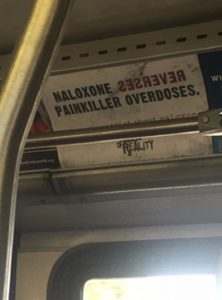U.S. Rep. Ben Ray Lujan (D) and Michael Romero (R) are running for the third congressional district seat in New Mexico and have actively voiced their concerns on the opioid problem in the state. A debate between the two candidates was held at KNME on Oct. 13 where the candidates discussed drug addiction with an emphasis on the opioid crisis.
Lujan started the debate by saying that he has been taking the opioid epidemic seriously, addressing the issue since he was elected. This past year, the incumbent candidate Lujan worked on a piece of legislation through a conference committee that addressed the opioid epidemic that is spreading across America. In a letter to Republican conferees, Lujan urged them to support $920 million to respond to the opioid crisis. The amendment was defeated with all Republicans on the committee voting against it.
Romero responded by saying that government should not get involved because it is up to the one who is addicted to seek help. “We do need to provide these facilities, but we can’t force them. When we cater to [drug addicts], it doesn’t break the cycle,” Romero said.
According to the New Mexico Department of Health (NMDOH), New Mexico is ranked second in the nation in per-capita deaths due to accidental opioid drug overdoses. Communities across the state are looking to the legislature for a solution to this growing epidemic.
The NMDOH also released that 493 deaths were linked to prescribed opioid and heroin overdoses in New Mexico’s Rio Arriba county (in the heart of the third congressional district) in 2015, with a large concentration in Española — home of the most opioid drug overdoses in the state.
The pharmaceutical companies and their lobbying groups are attempting to kill state measures aimed at opioid drugs, despite the amount of overdoses and deaths.
A recent study done by The Center of Public Integrity (CPI) and The Associated Press (AP)s discovered that drug makers in New Mexico have tried to get rid of the bills to limit opioid use. These reports show that Purdue Pharma, which is the maker of Oxycontin, made an estimated $24 billion dollars off of opioid sales last year.
The investigation continued when CPI and AP had released that makers of prescription painkillers tried to kill state measures aimed at opioid drugs.
Pharmaceutical industry’s lobbying efforts and campaign contributions began in 2005 and continue. CPI said that the lobbyists would talk one-on-one with senators and representatives to hold back on the bill that limits prescriptions of opioid painkillers for pain up to seven days.

In New Mexico, both state and federal candidates collected more than $337,000 in contributions in the last ten years. One of the top recipients was Lujan, receiving more than $74,000 since he was elected. Lujan declined to comment on the efforts between him and the opioid lobbyists.
Lujan says that Republicans voted ‘no’ to fund legislation for opioid addiction treatment. “The sad thing was is that when our Republican colleagues were given an opportunity to vote on funding for the piece of legislation I carried, requesting 1.1 billion dollars from president Obama…They all voted no.We need to pass these programs,” Lujan said. In July of 2016, congress passed The Comprehensive and Recovery Act of 2016, on top of other programs.
In the televised debate, Romero’s argued that funding for health programs will not help those who are addicted. “The definition of insanity is doing the same thing over and over again and expecting a different outcome,” Romero said. “It starts with family”
Romero said he believes the federal government makes it too easy for addicts to continue down the same path. “We need to put the blame where it’s at, and then get them to fix themselves, and then we can help them,” Romero concluded.
UNM student Jacob Maestas is from La Puebla, New Mexico (between Chimayo and Espinola) and has witnessed how fast drug addiction can spread throughout a single town. “I don’t think we need to expand programs because I am not convinced that they work. It is a waste of tax dollars,” Maestas said. “There is a ridiculous drug problem here and neither incarceration or federally funded programs seem to help, especially with all the money being spent on both.” Maestas has been following Romero’s campaign closely, and has met with Lujan on several occasions. “I agree with Romero here but with that being said, it is not something we can ignore. The whole tactic that the government is using needs to be reevaluated. Throwing money at the problem won’t fix it.”
According to Ballotpedia, New Mexico’s 3rd Congressional election in 2014 resulted in Lujan beating Republican challenger Jefferson Byrd in 2014, winning 61 percent of the vote. In Taos County, Lujan won 85 percent of the vote that year. Lujan beat Byrd by a similar margin in 2012. Romero’s bid is widely considered a long shot in the heavily Democratic third district. There has only been one Republican to hold the seat in the third district since it was created in 1983. It was Bill Redmond who served from 1997-1999.
New Mexico is working to fix the problem with illegal and legal opioid addictions. An announcement made by the NMDOH released that nearly two-thirds of New Mexico counties saw a decline in overdose deaths last year. The department released county-by-county data, which shows overdose deaths decreased in 20 of 33 counties. They also reported a 9 percent decrease in statewide overdose deaths. These efforts are hoping to bring more lives back from the struggles of addictions. “The first thing that needs to happen in our state is to remember that opioid addiction is a health issue, not a criminal issue,” Lujan said.
Follow Maya and Angelica on Twitter.